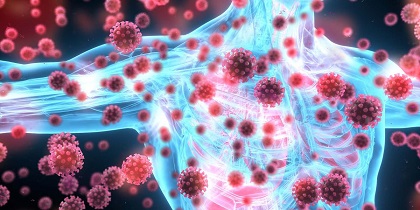Interesting Study Findings From Iceland On Factors That Increases Risk Of SARS-CoV-2 Reinfections
Source: Medical News - SARS-CoV-2 Re-infections Aug 18, 2022 2 years, 8 months, 1 week, 1 day, 11 hours, 46 minutes ago
A new study by researchers from The National University Hospital of Iceland and University of Iceland published in the peer reviewed journal: JAMA Network showed that the more COVID-19 jabs a person received, their chances of getting re-infected increases!
https://jamanetwork.com/journals/jamanetworkopen/article-abstract/2794886

Reinfections are already becoming the norm and in coming months with various new BA.2 and BA.5 subvariants expected to become more dominant in circulation, reinfection will rise exponentially. Thailand
Medical News predicts that although reinfections will only be severe in those in the vulnerable groups ie the old, the young, obese, immunocompromised, those with existing comorbidities such as hypertension, heart issues etc, for the rest though they might be symptomatic for a slightly longer period of time initially, they will recover and then in weeks or months, suffer more severe long term effects of the infections as the variants are getting more adapted for disarming the human host immune responses and for viral persistence…..slowly and silently causing more damage to cellular pathways, tissues and organs and wreaking havoc with various genes and components of the immune system, endocrine system, vascular system, CNS system and other organs.
The initial aim of this study was to estimate the proportion of persons who become re-infected with SARS-CoV-2 during the Omicron wave in Iceland.
The population-based cohort study monitored all persons previously infected with SARS-CoV-2 for reinfection during the Omicron wave in Iceland, which was defined from December 1, 2021 (first diagnosed case of Omicron in Iceland) to the end of the study period on February 13, 2022. Data on all SARS-CoV-2 polymerase chain reaction (PCR) test results performed in the country were obtained from Landspitali–The National University Hospital of Iceland, and data on vaccine status were obtained from the Icelandic Directorate of Health. COVID-19 reinfection was defined as a positive PCR test for SARS-CoV-2 60 or more days from a previous positive test.
In total, 11 536 PCR-positive persons were included. The mean (SD) age was 34 (19) years (median, 31 years; range, 0-102 years), 5888 (51%) were male, 2942 (25.5%) had received at least 1 dose of COVID-19 jabs, and the mean (SD) time from initial infection was 287 (191) days (median, 227 days; range, 60-642 days).
SARS-CoV-2 re-infection was observed in 1327 persons (11.5%) during the Omicron period. Of those who had received 1 dose or less of the COVID-19 jabs, 11.7% (1007 of 8598 individuals) were re-infected, compared with 10.9% (320 of 2938 individuals) who had received 2 or more doses. The re-infection rate was highest (475 of 3136 individuals [15.1%]) among those aged 18 to 29 years. Fewer re-infections occurred among older individuals.
Importantly, the probability of re-infection increased with time from the initial infection (odds ratio of 18 months vs 3 months, 1.56; 95% CI, 1.18-2.08) and was higher among persons who had received 2 or more doses of the COVID-19 jabs compared with 1 dose or less of these jabs (odds ratio, 1.42; 95% CI, 1.13-1.78). Defining re-infection after 30 or more days or 90 or more days did not qualitatively change the results.
t;
The study findings showed that a substantial proportion of persons experienced SARS-CoV-2 re-infection during the first 74 days of the Omicron wave in Iceland, with rates as high 15.1% among those aged 18 to 29 years. Longer time from initial infection was associated with a higher probability of re-infection, although the difference was smaller than expected.
Shockingly, the study findings shwed that 2 or more doses of COVID-19 jabs were associated with a slightly higher probability of re-infection compared with 1 dose or less.
The study findings also suggest that re-infection is more common than previously thought.
The study team is concerned with the key question as to whether infection with the Omicron variant will produce better protection against Omicron reinfection, compared with other variants. (We already know that answer from emerging data over the last 5 weeks…..none whatsoever!)
For the latest on
COVID-19 Re-infections, keep on logging to Thailand
Medical News.
